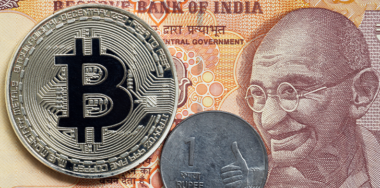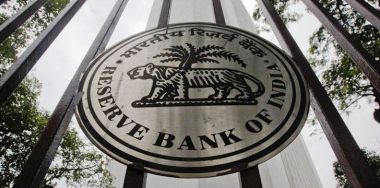| Getting your Trinity Audio player ready... |
Kurt Wuckert Jr. is the Chief Bitcoin Historian at CoinGeek. Recently, he joined Rob Kientz on Gold Silver Pros to talk about Bitcoin, the digital currency markets, regulations, stablecoins, and much more.
Bitcoin in the Islamic world
Kientz opens by noting that Wuckert recently traveled to the Middle East for the BSV Global Blockchain Convention. He asks how Bitcoin is received and perceived in that part of the world.
Wuckert informs us that the Islamic world is very open to Bitcoin. They see the financial system in the rest of the world as somewhat irresponsible, and they view the debt-based system as immoral. Bitcoin’s fixed supply resonates with Islamic thinking and makes sense to them.
Wuckert reminds us that in the Islamic world, usury (interest) is viewed with disdain, but he says this attitude changes a little in some situations. They accept low-interest debt for business purposes, and it makes sense if it generates cash flow, but things like credit cards are still seen as immoral and aren’t widely used.
According to the conversations Wuckert has had, Islamic countries are also keen on using the Bitcoin ledger to increase transparency, make auditing easier, and reduce friction within their economies. They see the potential of Bitcoin, and some are willing to use it in an attempt to leapfrog the West and bypass the archaic systems designed in the 70s, which are still in use in many parts of the world today. He points out that the decision to move onto Bitcoin is easier when royal families can basically decide this without all the wrangling involved in multi-party democracies.
As well as the fixed supply and the transparent, open nature of the ledger, Wuckert notes that ideas like securing property rights and creating digital IDs hold appeal in the Middle East. These are some of the reasons BSV is gaining widespread attention and interest there.
Regulations and the financialization of Bitcoin
Kientz then leads us into a different discussion on government regulation of digital currencies. He asks Wuckert if he thinks regulations are a threat to Bitcoin in any way.
Wuckert responds that he doesn’t blame governments for wanting to regulate Bitcoin and other digital currencies. He does, however, blame the culture in the West and the desire to extract value through speculation rather than creating value. In 2017, he penned a short article explaining how the BTC futures were the death of Bitcoin. In it, he outlined that financializing Bitcoin, making it a store of value or digital asset, ruins the economics of the system and kills Bitcoin as it was originally designed.
“If they can financialize it. They can regulate and manipulate it,” Kientz said.
Sadly, since this financialization began, Wuckert points out there’s no more talk of challenging big payments companies and networks like PayPal and Visa. However, the countries in the Middle East still see the disruptive potential of Bitcoin, and they see an opportunity to make their economies more competitive by making everything more efficient. In short, they see Bitcoin as a tool to be used to make things better, which is what it was always supposed to be.
Will Bitcoin kill the systems that have existed since the 1970s?
Kientz then asks whether Bitcoin poses any real threat to the existing financial system.
Wuckert answers that he doesn’t know if it will kill it outright, but he believes it could disrupt and change it. He notes that, had he been around in the 70s, he’d have wagered that the dollar would die shortly after the end of the Bretton Woods system, but he’d have been wrong because we’re still using it 50 years later.
However, he does point out that Bitcoin has incentivized a broader economic education in many people. Today, more people are informed about how the existing system works and are asking questions about hard money and topics of that nature than in previous eras. This could have consequences for the existing system.
Bitcoin transactions and costs—what’s the limit?
Kientz notes that the uptake of Bitcoin in the real economy is still quite limited. He says that, in his view, BTC is a commercial banker’s wet dream; charging for transactions is their business model. He asks Wuckert to educate the audience on the various Bitcoin implementations and how we got here.
Wuckert points out that the term Bitcoin is used interchangeably to describe the network, the unit of account, and the protocol itself. In his view, Satoshi used it too many times and for too many things. He tells the audience that he’s talking about the protocol when he uses it.
Why has there not been much uptake of Bitcoin in the real economy? In part, it’s because BTC developers have made many bad decisions, including limiting the network capacity to 6MB of data per hour; this translates to 7 transactions per second max. Also, BTC supporters see it as some sort of collateral or treasury asset and have no real interest in using it as peer-to-peer electronic cash.
However, Wuckert reminds us that the Bitcoin protocol is the most efficient broadcast payments technology on earth despite what BTC developers have done. It’s capable of micropayments at scale on Bitcoin SV and to a lesser extent on Bitcoin Cash. Unlike the other two, BSV is used by lots of applications, and these generate plenty of demand to write transactions to the ledger. The apps are fueled mainly by gaming applications right now, but there are many other use cases in the works. The point is that real payments are occurring on the BSV network, whereas on BTC and BCH, the blockchains are relatively dead.
Touching briefly on the topics of CBDCs to illustrate the importance of a single global ledger, Wuckert explains that they are nothing more than tokens, and it doesn’t make sense for each token to run on its own blockchain. A scalable, fast, low-fee blockchain like Bitcoin SV is required to make everything work in an interconnected way, just as we use one internet protocol today.
Stablecoins, the LUNA implosion, and Tether under pressure
Kientz then turns his attention to a topic that’s been in the headlines a lot recently: stablecoins. He asks Wuckert what they are and why they’re having issues right now.
Wuckert explains that there are two main types of stablecoins: collateralized and algorithmic. Tether is an example of the first kind (or so it claims) and is allegedly redeemable for US$1 or the equivalent. With these types of stablecoin, treasurers buy and sell assets to make sure the 1:1 dollar peg is maintained. However, at least in the case of Tether, the issuer has never proven it is really backed, has never undergone an audit, and has been caught lying multiple times. At the moment, Wuckert notes that we see billions of dollars in Tether redemptions, and he wonders how long the issuer can hold out before it collapses.
Algorithmic stablecoins, on the other hand, use smart contracts called Automated Market Makers that try to hold the dollar peg by printing and burning coins based on supply and demand. Terra’s UST was an example of this, but it failed spectacularly recently. UST was allegedly backed by BTC, but someone figured out an exploit, attacked the peg, and the entire system imploded, wiping out billions in value overnight.
While Wuckert doesn’t pin a timeframe on a larger collapse (such as Tether), he says he is “not at all” confident and points out that a run could start at any moment and could be catalyzed by anything at all.
Bitcoin’s history—Wuckert’s specialty
Wrapping up, Wuckert explains that one of his favorite things to do is to teach people about Bitcoin’s history. He’s been around for a long time and has seen lots of things unfold that new entrants to the market are unaware of. For example, he’s witnessed VCs from Mastercard and elsewhere comes in and totally change the narrative surrounding Bitcoin.
Having seen all of this, Wuckert is firmly in the Bitcoin SV camp. He doesn’t believe in the store of value narrative, and he believes that big blocks with lots of transactions providing real value for people and businesses are what Bitcoin is all about.
Watch: The BSV Global Blockchain Convention panel, Islamic Finance & Blockchain
https://www.youtube.com/watch?v=RzSCrXf1Ywc&t=4113s
New to blockchain? Check out CoinGeek’s Blockchain for Beginners section, the ultimate resource guide to learn more about blockchain technology.









